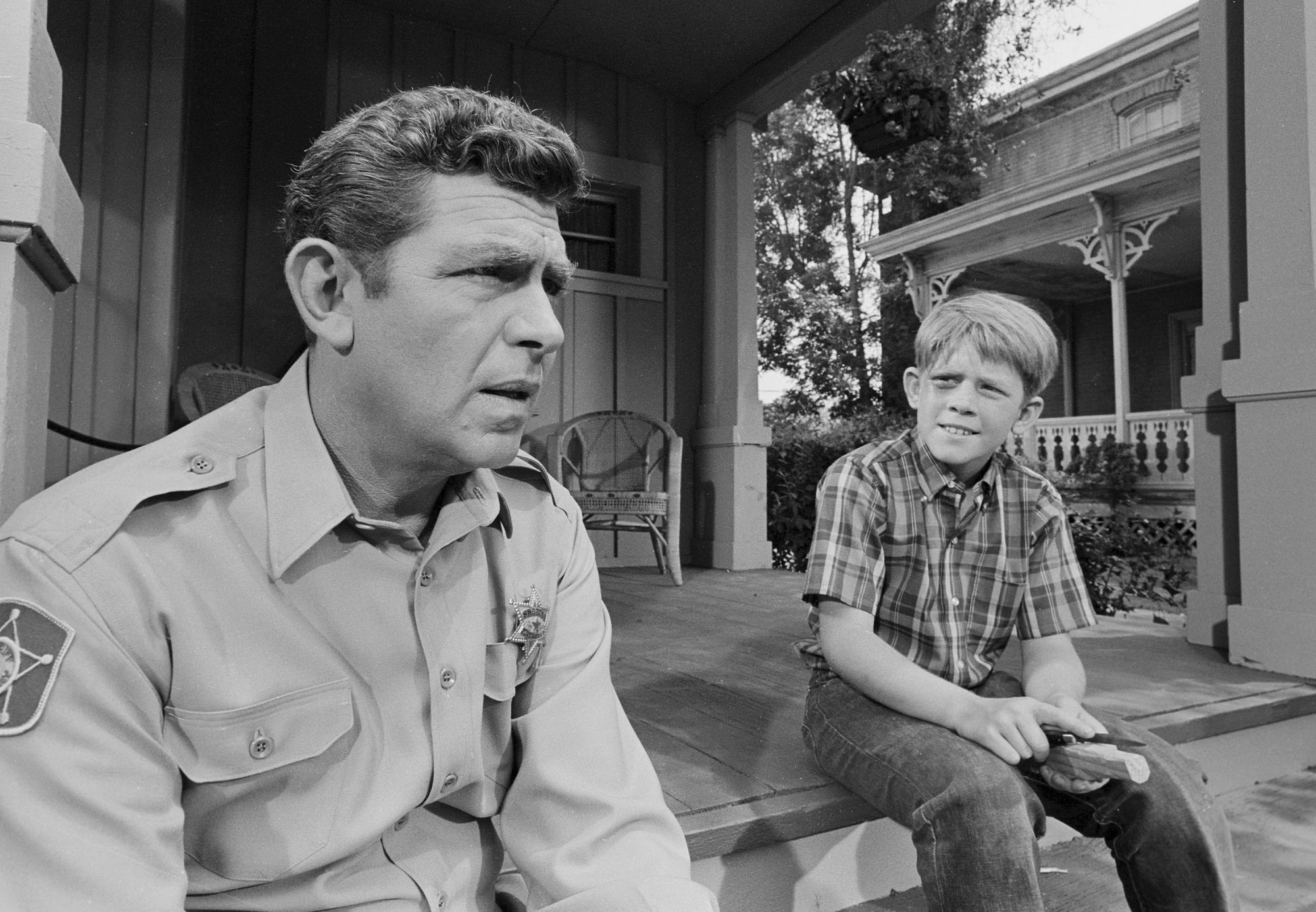‘The Andy Griffith Show’: Andy Fought Hard Against Bad Jokes On the Series
While The Andy Griffith Show is essential for several reasons, the most fundamental reason behind it was the comedy. Yes, it was a shockingly grounded portrayal of a small rural town where nothing too bad ever seemed to happen, but at its core, it had to be funny.
Ron Howard, who got his start in show business as Opie Taylor, learned how to be an actor and a filmmaker while growing up on the series. Looking back, he spoke about the impact that Griffith had on his life.
‘The Andy Griffith Show’ was loved by fans

The Andy Griffith Show was a strange endeavor by nearly every metric. It was named after a famous, albeit not A-List actor with just three film credits and a few television appearances under his belt.
However, his debut performance in A Face in the Crowd helped make him a rising star. Rather than continue his big-screen career full-time, Griffith opted to headline a show that bore his name.
This became his defining role. The Andy Griffith Show was equal parts sweet and hilarious. Not only was his Sheriff Andy Taylor a hit, but Howard’s Opie, Don Knotts’ Barney Fife, and Jim Nabors’ Gomer Pyle became iconic characters on their own. The show lasted for eight years, spinning off into Mayberry R.F.D. After Griffith left the show, and his footprint is still felt to this day.
The Andy Griffith Show is a pioneer of the television medium. Everything from its humor to its heartfelt tone and wholesome image still ages remarkably well, while other series from the time suffer from age. It made stars out of everyone involved, although few can boast the success that Ron Howard had because of it.
Ronny Howard breaks out
Ron Howard was a working television actor when he took the role on Andy Griffith. Just six years old at the time, Howard spent his childhood up to his early teenage years on set.
There, he not only got better as an actor but started to fall in love with the work behind the scenes. By the 1970s, after his successful run on Happy Days, Howard mostly shunned on-camera work and rebranded himself as a full-time director by the end of the following decade.
Now, he’s one of the most successful directors in Hollywood. From comedy to drama to Star Wars origins stories, Howard is a journeyman who knows how to put his thumbprint on everything he touches. This, in part, is thanks to what he learned from Griffith years ago.
Ron Howard weighs in on Andy Griffith
Howard still speaks lovingly about his days at The Andy Griffith Show, but the show’s titular star still holds a special place in his heart. Speaking to the LA Times about what made Griffith different from the average actor,
Howard talked about his early mentor’s professional conduct. However, what always struck him was Griffith’s ability to expect the best out of everyone involved, stay engaged on a production, and still stay true to himself in professional ways.
“Respect. At every turn he demonstrated his honest respect for people and he never seemed to expect theirs in return, but wanted to earn it,” Howard told the LA Times. “He taught me a great deal through the examples he set and the approach to our work on the set. I learned about comedic timing, paying off characters in the third act of a story line, and the equal values of both focused rehearsal and, at particular moments, of total chaotic spontaneity.”
One thing that Griffith focused on, however, was the comedy. A sitcom can have all the heart and warmth it wants, but if the funniness is not delivered, it will never end well. Howard spoke about the ways that Griffith let himself be heard in this regard.
“I saw him lobby against jokes that were admittedly funny but that were at the expense of and undercut the long-term reliability of a character,” Howard told LA Times. “I was fortunate to witness and even participate in thousands of minutely detailed creative problem-solving interactions with Andy always tirelessly engaged. He proved hour by hour, episode by episode that creativity and neurotic angst were in fact not inexorably linked.”
Over 50 years after its final episode, Andy Griffith is still one of the most influential television series of all time. However, thanks to Howard’s sixty-year career in show business, its namesake’s legacy lives on with films like Apollo 13, Hillbilly Elegy, and Solo: A Star Wars Story.


